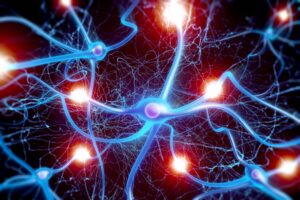Every once in a while a person will suffer from sleeplessness. In fact, greater than 40% Americans experience one or more episodes of insomnia in a year, as reported by the National Center on Sleep disorders. When such sleep disorders occur frequently, there are severe physical and mental effects including the effect on the mood.
More than 10% Americans suffer from chronic insomnia that can extend from a few weeks to years, a trend that is increasing. The condition is marked by bouts of brief and restless sleep for a stretch of few hours. Those who sleep much less than the required seven hours in a night have an increased risk of mortality.
A person sleeps through a third of his life, and while the role of sleep is not completely understood, its requirement is accepted in all mammalian species. The effects of one sleepless night are evident the next day as the person gets irritated easily, slurs, has difficulty retaining information, has blurred vision and internal effects include loss of temperature regulation and unbalanced hormones.
When it comes to sleep, a person can have three kinds of complaints. First is the feeling of not getting sufficient sleep. Second, tiredness during the day or sleepiness and thirdly unusual events like sleepwalking or frequent nightmares.
Insomnia may be a primary sleep disorder, thus a condition or a secondary sleep disorder, i.e. a symptom of another condition or disease.
The Sleep Cycle
The circadian rhythm is a natural 24 hour sequence of biological processes, of which sleep is a part. The rhythm is self-regulated and intrinsic, it adapts to the external environment through cues like daybreak for instance. It is due to this process that a person can change his sleep cycle in different time zones.
Similar to a receiver that can change frequency to match the frequency being transmitted; our brains have the capability to become tuned to a particular frequency as well. Low frequency magnetic field therapies can cause the brain to enter a state of increased drowsiness and by applying the magnetic field overnight lead to a state of restful sleep. The hypothalamus is a gland that regulates the circadian rhythm and is stimulated by the magnetic field as well leading to better control over the sleep cycle.
There are two phases of sleep, Non rapid eye movement (NREM) and Rapid eye movement (REM) sleep, 80% of our sleep falls under NREM. The most restful sleep occurs as a part of NREM early at night, called as the Slow Wave Sleep (SWS). It is the state of deep sleep and is not interrupted easily. It is also the most restorative stage of the sleep cycle and is of greater duration in the young and reduces with age, hence the greater number of sleep related complaints from elders.
PEMF increases slow wave sleep activity through the control of melanin production by the regulation of the serotonin system.
Sleep Disorders
Several conditions can be linked to insomnia if it is not a secondary sleep disorder, i.e. the sleep disorder is itself the cause of insomnia. Excessive or less sleep, sleep apnea, circadian disorders or the restless leg syndrome are all classified as dyssomnias. Other disorders like sleep walking, talking, terrors, and teeth grinding (bruxism) or bed wetting (enuresis) are classified as parasomnias.
An underlying physiological or psychiatric condition is usually the root cause for insomnia and hence the treatment should focus on managing the causative condition itself. The symptoms of insomnia can be due to several conditions, like excessive pain, drug withdrawal, depression or bipolar disorders, neurological diseases like Parkinson’s, stress due to work, heavy alcohol consumption, hormonal imbalances or poor sleep habits etc.
Since magnetic therapies are utilized in the treatment of several conditions and disease of the body and have muscle relaxing, stress reducing and circulation increasing, properties it can alleviate sleep disorders by coincidence or intentionally but indirectly.
People with sleep disorders have a higher level of adrenaline and cortisol; which are hormones; in their blood during nighttime. They also have higher metabolic rates during day and night, however it is unclear whether these symptoms result from the disorder or cause it. In either case magnetic therapy can be useful since it prevents the over activation of the sympathetic nervous system and thus helps the body cope with stressors more effectively.
Treatment
The underlying causes for insomnia or other sleep disorders are numerous, therefore the most direct method of controlling the symptoms is to treat the disorder as if it were a primary sleep disorder and provide symptomatic relief. There are pharmacological treatments available however they have the risk of causing tolerance or even dependence. Hypnotic medication is therefore recommended for short term use only and shouldn’t be used to treat a chronic condition.
Behavioral patterns and habits tend to be responsible for most of the sleep disorders that afflict people. Watching something disturbing before sleeping may cause restless sleep and bad dreams, for example. Some habits that can result in sleep disorders are, late night exercise, drinking coffee in the afternoon or smoking before bedtime. Sleep has restorative functions not just for the physiology of the body but helps manage emotional and psychological states as well, therefore it is essential that the body receives positive signals before a person goes to sleep.
The field of sleep and sleep disorders definitely requires further research. Every person is afflicted by this phenomenon sometime in his life and in today’s stressful world; one might suffer from a condition like this for a while. Magnetic fields, it has been discovered provide good relief in such cases and must be employed wherever possible.






